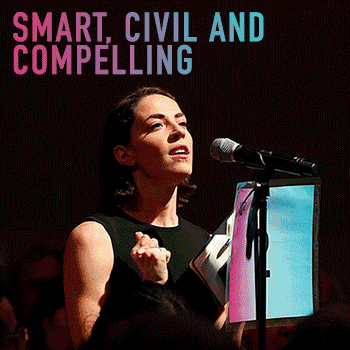Workplace romances, dead or just hidden from view?

Workplace romances, dead or just hidden from view?
Opinion + AnalysisBusiness + LeadershipRelationships
BY Fiona Smith 17 MAR 2019
Falling in love at work seems kind of quaint in the age of Tinder. But it still happens, despite the convenience of “swiping right” on strangers via dating sites.
The practice of getting to know someone before asking them out to dinner may intrigue some of your younger colleagues, but it still had its attractions for the 11 per cent of heterosexual couples who met through work in 2017.
So dating apps have not yet killed the office romance, but they have put the squeeze on it. At the “birth” of the internet, in 1995, 19 per cent of heterosexual couples said they met as, or through, colleagues, according to research by Stanford University in the US.
If fewer people are “coupling up” at work, the reasons should be pretty obvious. Negotiating a romance at work has always been somewhat tricky but has become even more so as employers tighten their human resources policies around how such relationships should be conducted.
Just like the “bonking ban” in Federal Parliament, which now rules out affairs between Ministers and their staff, many companies now have policies about when relationships must be declared and that prevent couples from being in charge of each other at work.
Employers are also mindful of the lessons learned from the #Metoo anti-sexual harassment movement, which has raised awareness that people can be deeply hurt by repeated and unwanted sexualised attention – especially from their bosses.
Trouble starts when ‘no’ is ignored
There will always be people who resist social change. However, the CEO of Relationships Australia, Elisabeth Shaw, quickly dismisses protestations by those who say morality-policing has gone too far in interfering in employees’ personal lives.
“The reality is: the sort of examples that make it into the public domain are those who haven’t taken no for an answer. They have kept up a level of sexual banter or flirtation that isn’t wanted,” she says.
Shaw says relationships become troublesome when the couple have an unequal power relationship. In practice, this usually means a male boss and a female who reports to him. Someone is often required to give up their job.
“The repercussions are that it is the woman who suffers. It is usually the woman who has the less valuable job and can be the one who people think should leave,” she says.
“The person in the subordinate job is the most vulnerable.”
‘None of us are islands’
If the relationship is an affair, that adds another layer of difficulty. The necessary secrecy leads to suspicion about how and why people are favoured by the boss.People in the midst of an affair tend to get lost in their own experience and forget that “none of us are islands”, she says. “What they do does affect the group.”
This is especially the case when the spouses of the couple are known to the group and onlookers start to feel morally compromised, as if they are colluding in the affair.
How colleagues view office romances can also depend on whether the people involved are well-liked and respected. Another factor is whether onlookers believe that they will be adversely affected – they may be shut out of work-related conversations between the pair and, if one of the couple is a boss, there may be favouritism towards their lover.
“There could be pillow talk, they could feel their own career is disadvantaged, that will also turn the heat up,” says Shaw.
When to tell
Deciding when to disclose the relationship is difficult – even when things seem straightforward. Should it be after the second date, when you agree to see each other exclusively, or after you tell your families?
“Everyone would pick a different moment where they would call it a relationship,” says Shaw. “When do they have a right to privacy as adults and when do they have a duty to others?“Some would argue if they keep it discreet and it doesn’t impact anybody, should they ever have to tell anybody?”
The CEO of human resources consultancy, mwah (Making Working Absolutely Human), Rhonda Brighton-Hall, has spent her career in large organisations and says that it is unfortunate that the relationships that most need to be reported are also the least likely to be reported.
These are the boss-subordinate romances.“I think the ones that don’t get reported are where the power difference is massive. There is something about that that creates gossip, puts people on tenterhooks, upsets the people around them,” she says.
“If you a very senior leader, your integrity and ethics of relationships are visible to people. You attract more judgement and that is probably not unfair if you are holding yourself up as a role model of good behaviour and honesty and integrity.”
“However, if they are not in a reporting line, they don’t need to notify anyone.”
In the absence of a handy app, Shaw offers a few guidelines to ensure lovers end up on the right side of the HR department (and out of the headlines).
Yes, you can find romance at work.
5 Easy steps:
- No means no: You can ask once, but take no for an answer
- Right place, right time: When indicating your non-work-related interest, make sure you are not at work. Ask them out for a coffee or a walk.
- Who’s on top?: Be aware of power imbalances between the two of you. The person with less power at work tends to be most adversely affected if things go sour.
- Create distance: Once the relationship looks like it may be ongoing, ideally one of the two would transfer to another department or employer. It is better for the relationship and better for the workplace.
- Tell someone: Once you consider yourself “dating” a colleague, you need to tell someone at work. That could be your manager or HR. It could even be a “critical friend” at work, who is likely to tell you if your relationship is affecting others.
MOST POPULAR
ArticleBeing Human
Philosophy must (and can) thrive outside universities
ArticleBeing Human
Ozi Batla: Fatherhood is the hardest work I’ve ever done
ArticleHEALTH + WELLBEING
Parent planning – we should be allowed to choose our children’s sex
BY Fiona Smith
Fiona Smith is a freelance journalist who writes about people, workplaces and social equity. Follow her on Twitter @fionaatwork
Blockchain: Some ethical considerations

Blockchain: Some ethical considerations
Opinion + AnalysisBusiness + LeadershipScience + Technology
BY Simon Longstaff 16 MAR 2019
The development and application of blockchain technologies gives rise to two major ethical issues to do with:
- Meeting expectations – in terms of security, privacy, efficiency and the integrity of the system, and
- The need to avoid the inadvertent facilitation of unconscionable conduct: crime and oppressive conduct that would otherwise be offset by a mediating institution
Neither issue is unique to blockchain. Neither is likely to be fatal to its application. However, both involve considerable risks if not anticipated and proactively addressed.
At the core of blockchain technology lies the operation of a distributed ledger in which multiple nodes independently record and verify changes on the block. Those changes can signify anything – a change in ownership, an advance in understanding or consensus, an exchange of information. That is, the coding of the blockchain is independent and ‘symbolic’ of a change in a separate and distinct real-world artefact (a physical object, a social fact – such as an agreement, a state of affairs, etc.).
The potential power of blockchain technology lies in a form of distribution associated with a technically valid equivalent of ‘intersubjective agreement’. Just as in language the meaning of a word remains stable because the agreement of multiple users of that word, so blockchain ‘democratises’ agreement that a certain state of affairs exists. Prior to the evolution of blockchain, the process of verification was undertaken by one (or a few) sources of authority – exchanges and the like. They were the equivalent of the old mainframe computers that formerly dominated the computing landscape until challenged by PC enabled by the internet and world wide web.
Blockchain promises greater efficiency (perhaps), security, privacy and integrity by removing the risk (and friction) that arises out of dependence on just one or a few nodes of authority. Indeed, at least some of the appeal of blockchain is its essentially ‘anti-authoritarian’ character.
However, the first ethical risk to be managed by blockchain advocates is that they not over-hype the technology’s potential and then over-promise in terms of what it can deliver. The risk of doing either can be seen at work in an analogous field – that of medical research. Scientists and technologists often feel compelled to announce ‘breakthroughs’ that, on closer inspection, barely merit that description. Money, ego, peer group pressure – these and other factors contribute to the tendency for the ‘new’ to claim more than can be delivered.
“However, the first ethical risk to be managed by blockchain advocates is that they not over-hype the technology’s potential and then over-promise in terms of what it can deliver.”
It’s not just that this can lead to disappointment – very real harm can befall the gullible. One can foresee an indeterminate period of time during which the potential of blockchain is out of step with what is technically possible. It all depends on the scope of blockchain’s ambitions – and the ability of the distributed architecture to maintain the communications and processing power needed to manage and process an explosion in blockchain related information.
Yet, this is the lesser of blockchain’s two major ethical challenges. The greater problem arises in conditions of asymmetry of power (bargaining power, information, kinetic force, etc.) – where blockchain might enable ‘transactions’ that are the product of force, fear and fraud. All three ‘evils’ destroy the efficiency of free markets – and from an ethical point of view, that is the least of the problems.
“The greater problem arises in conditions of asymmetry of power (bargaining power, information, kinetic force, etc.) – where blockchain might enable ‘transactions’ that are the product of force, fear and fraud.”
One advantage of mediating institutions is that they can provide a measure of supervision intended to identify and constrain the misuse of markets. They can limit exploitation or the use of systems for criminal or anti-social activity. The ‘dark web’ shows what can happen when there is no mediation. Libertarians applaud the degree of freedom it accords. However, others are justifiably concerned by the facilitation of conduct that violates the fundamental norms on which any functional society must be based. It is instructive that crypto-currencies (based on blockchain) are the media of exchange in the rankest regions of the dark web.
So, how do the designers and developers of blockchain avoid becoming complicit in evil? Can they do better than existing mediating institutions? May they ‘wash their hands’ even when their tools are used in the worst of human deeds?
This article was first published here. Dr Simon Longstaff presented at The ADC Global Blockchain Summit in Adelaide on Monday 18 March on the issue of trust and the preservation of ethics in the transition to a digital world.
Ethics in your inbox.
Get the latest inspiration, intelligence, events & more.
By signing up you agree to our privacy policy
You might be interested in…
Opinion + Analysis
Business + Leadership, Politics + Human Rights
Democracy is still the least-worst option we have
Opinion + Analysis
Business + Leadership
Is employee surveillance creepy or clever?
Opinion + Analysis
Business + Leadership, Relationships
There’s no good reason to keep women off the front lines
Opinion + Analysis
Science + Technology, Society + Culture
That’s not me: How deepfakes threaten our autonomy
BY Simon Longstaff
Simon Longstaff began his working life on Groote Eylandt in the Northern Territory of Australia. He is proud of his kinship ties to the Anindilyakwa people. After a period studying law in Sydney and teaching in Tasmania, he pursued postgraduate studies as a Member of Magdalene College, Cambridge. In 1991, Simon commenced his work as the first Executive Director of The Ethics Centre. In 2013, he was made an officer of the Order of Australia (AO) for “distinguished service to the community through the promotion of ethical standards in governance and business, to improving corporate responsibility, and to philosophy.” Simon is an Adjunct Professor of the Australian Graduate School of Management at UNSW, a Fellow of CPA Australia, the Royal Society of NSW and the Australian Risk Policy Institute.
Not too late: regaining control of your data

Not too late: regaining control of your data
Opinion + AnalysisBusiness + LeadershipPolitics + Human RightsScience + Technology
BY The Ethics Centre 15 MAR 2019
IT entrepreneur Joanne Cooper wants consumers to be able to decide who holds – and uses – their data. This is why Alexa and Siri are not welcome in her home.
Joanne won’t go to bed with her mobile phone on the bedside table. It is not that she is worried about sleep disturbances – she is more concerned about the potential of hackers to use it as a listening device.
“Because I would be horrified if people heard how loud I snore,” she says.
She is only half-joking. As an entrepreneur in the field of data privacy, she has heard enough horror stories about the hijacking of devices to make her wary of things that most of us now take for granted.
“If my device, just because it happened to be plugged in my room, became a listening device, or a filming device, would that put me in a compromising position? Could I have a ransomware attack?”
(It can happen and has happened. Spyware and Stalkerware are openly advertised for sale.)
Taking back control
Cooper is the founder of ID Exchange – an Australian start-up aiming to allow users to control if, when and to whom they will share their data. The idea is to simplify the process so that people will be able to visit one platform to control access.
This is important because, at present, it is impossible to keep track of who has your data and how much access you have agreed to and whether you have allowed it to be used by third parties. If you decide to revoke that access, the process is difficult and time-consuming.
Big data is big business
The data that belongs to you is liquid gold for businesses wanting to improve their offerings and pinpoint potential customers. It is also vital information for government agencies and a cash pot for hackers.
Apart from the basic name, address, age details, that data can reveal the people to whom you are connected, your finances, health, personality, preferences and where you are located at any point in time.
That information is harvested from everyday interactions with social media, service providers and retailers. For instance, every time you answer a free quiz on Facebook, you are providing someone with data.
Google Assistant uses your data to book appointments
With digital identity and personal data-related services expected to be worth $1.58 trillion in the EU alone by 2020, Cooper asks whether we have consciously given permission for that data to be shared and used.
A lack of understanding
Do we realise what we have done when we tick a permission box among screens of densely-worded legalese? When we sign up to a loyalty program?
A study by the Consumer Policy Research Centre finds that 94 per cent of those surveyed did not read privacy policies. Of those that did, two-thirds said they still signed up despite feeling uncomfortable and, of those, 73 per cent said they would not otherwise have been able to access the service.
And, what we are getting in return for that data? Do we really want advertisers to know our weak points, such as when we are in a low mood and susceptible to “retail therapy”? Do we want them to conclude we are expecting a new baby before we have had a chance to announce it to our own families?
Even without criminal intent, limited control over the use of our data can have life-altering consequences when it is used against us in deciding whether we may qualify for insurance, a loan, or a job.
“It is not my intention to create fear or doubt or uncertainty about the future,” explains Cooper. “My passion is to drive education about how we have to become “self-accountable” about the access to our data that will drive a trillion-dollar market,” she says.
“Privacy is a Human Right.”
Cooper was schooled in technology and entrepreneurialism by her father, Tom Cooper, who was one of the Australian IT industry’s pioneers. In the 1980s, he introduced the first IBM Compatible DOS-based computers into this country.
She started working in her father’s company at the age of 15 and has spent the past three decades in a variety of IT sectors, including the PC market, consulting for The Yankee Group, as a cloud specialist for Optus Australia, and financial services with Allianz Australia.
Starting ID Exchange in 2015, Cooper partnered with UK-based platform Digi.me, which aims to round up all the information that companies have collected on individuals, then hand it over those individuals for safekeeping on a cloud storage service of their choosing. Cooper is planning to add in her own business, which would provide the technology to allow people to opt in and opt out of sharing their data easily.
Cooper says she became passionate about the issue of data privacy in 2015, after watching a 60 Minutes television segment about hackers using mobile phones to bug, track and hack people through a “security hole” in the SS7 signaling system.
This “hole” was most recently used to drain bank accounts at Metro Bank in the UK, it was revealed in February.
Lawmakers aim to strengthen data protection
The new European General Data Protection Regulation is a step forward in regaining control of the use of data. Any Australian business that collects data on a person in the EU or has a presence in Europe must comply with the legislation that ensures customers can refuse to give away non-essential information.
If that company then refuses service, it can be fined up to 4 per cent of its global revenue. Companies are required to get clear consent to collect personal data, allows individuals to access the data stored about them, fix it if it is wrong, and have it deleted if they want.
The advance of the “internet of things” means that everyday objects are being computerised and are capable of collecting and transmitting data about us and how we use them. A robotic vacuum cleaner can, for instance, record the dimensions of your home. Smart lighting can take note of when you are home. Your car knows exactly where you have gone.
For this reason, Cooper says she will not have voice-activated assistants – such as Google’s Home, Amazon Echo’s Alexa or Facebook’s Portal – in her home. “It has crossed over the creepy line,” she says.
“All that data can be used in machine learning. They know what time you are in the house, what room you are in, how many people are in the conversation, keywords.”
Your data can be compromised
Speculation that Alexa is spying on us by storing our private conversations has been dismissed by fact-checking website Politifact, although researchers have found the device can be hacked.
The devices are “always-on” to listen for an activating keyword, but the ambient noise is recorded one second at a time, with each second dumped and replaced until it hears a keyword like “Alexa”.
However, direct commands to those two assistants are recorded and stored on company servers. That data, which can be reviewed and deleted by users, is used to a different extent by the manufacturers.
Google uses the data to build out your profile, which helps advertisers target you. Amazon keeps the data to itself but may use that to sell you products and services through its own businesses. For instance, the company has been granted a patent to recommend cough sweets and soup to those who cough or sniff while speaking to their Echo.
In discussions about rising concerns about the use and misuse of our data, Cooper says she is frustrated by those who tell her that “privacy is dead” or “the horse has bolted”. She says it is not too late to regain control of our data.
“It is hard to fix, it is complex, it is a u-turn in some areas, but that doesn’t mean that you don’t do it.”
It was not that long ago that publicly disagreeing with your employer’s business strategy or staging a protest without the protection of a union, would have been a sackable offence.
But not today – if you are among the business “elite”.
Last year, 4,000 Google employees signed a letter of protest about an artificial intelligence project with the Department of Defense. Google agreed not to renew the contract. No-one was fired.
Also at Google, employees won concessions after 20,000 of them walked out protesting the company’s handling of sexual harassment cases. Everyone kept their jobs.
Consulting firms Deloitte and McKinsey & Company and Microsoft have come under pressure from employees to end their work with the US Department of Immigration and Customs Enforcement (ICE), because of concerns about the separation of children from their illegal immigrant parents.
Amazon workers demanded the company stop selling its Rekognition facial recognition software to law enforcement.
Examples like these show that collective action at work can still take place, despite the decline of unionism, if the employees are considered valuable enough and the employer cares about its social standing.
The power shift
Charles Wookey, CEO of not-for-profit organisation A Blueprint for Better Business says workers in these kinds of protests have “significant agency”.
“Coders and other technology specialists can demand high pay and have some power, as they hold skills in which the demand far outstrips the supply,” he told CEO Magazine.
Individual protesters and whistle-blowers, however, do not enjoy the same freedom to protest. Without a mass of colleagues behind them, they can face legal sanction or be fired for violating the company’s code of conduct – as was Google engineer James Damore when he wrote a memo criticising the company’s affirmative action policies in 2017.
Head of Society and Innovation at the World Economic Forum, Nicholas Davis, says technology has enabled employees to organise via message boards and email.
“These factors have empowered employee activism, organisation and, indeed, massive walkouts –not just around tech, by the way, but around gender and about rights and values in other areas,” he said at a forum for The Ethics Alliance in March.
Change coming from within
Davis, a former lawyer from Sydney, now based in Geneva, says even companies with stellar reputations in human rights, such as Salesforce, can face protests from within – in this case, also due to its work with ICE.
“There were protesters at [Salesforce annual conference] Dreamforce saying: ‘Guys, you’re providing your technology to customs and border control to separate kids from their parents?,” he said.
Staff engagement and transparency
Salesforce responded by creating Silicon Valley’s first-ever Office of Ethical and Humane Use of Technology as a vehicle to engage employees and stakeholders.
“I think the most important thing is to treat it as an opportunity for employee engagement,” says Davis, adding that listening to employee concerns is a large part of dealing with these clashes.
“Ninety per cent of the problem was not [what they were doing] so much as the lack of response to employee concerns,” he says. Employers should talk about why the company is doing the work in question and respond promptly.
“After 72 hours, people think you are not taking this seriously and they say ‘I can get another job, you know’, start tweeting, contact someone in the ABC, the story is out and then suddenly there is a different crisis conversation.”
Davis says it is difficult to have a conversation about corporate social activism in Australia, where business leaders say they are getting resistance from shareholders.
“There’s a lot more space to talk about, debate, and being politically engaged as a management and leadership team on these issues. And there is a wider variety of ability to invest and partner on these topics than I perceive in Australia,” says Davis, who is also an adjunct professor with Swinburne University’s Institute for Social Innovation.
“It’s not an issue of courage. I think it’s an issue with openness and demand and shifting culture in those markets. This is a hard conversation to have in Australia. It seems more structurally difficult,” he says.
“From where I stand, Australia has far greater fractures in terms of the distance between the public, private and civil society sectors than any other country I work in regularly. The levels of distrust here in this country are far higher than average globally, which makes for huge challenges if we are to have productive conversations across sectors.”
MOST POPULAR
ArticleBeing Human
Philosophy must (and can) thrive outside universities
ArticleBeing Human
Ozi Batla: Fatherhood is the hardest work I’ve ever done
ArticleHEALTH + WELLBEING
Parent planning – we should be allowed to choose our children’s sex
BY The Ethics Centre
The Ethics Centre is a not-for-profit organisation developing innovative programs, services and experiences, designed to bring ethics to the centre of professional and personal life.
Employee activism is forcing business to adapt quickly

Employee activism is forcing business to adapt quickly
Opinion + AnalysisBusiness + LeadershipRelationships
BY The Ethics Centre 12 MAR 2019
It was not that long ago that publicly disagreeing with your employer’s business strategy or staging a protest without the protection of a union, would have been a sackable offence.
But not today – if you are among the business “elite”.
Last year, 4,000 Google employees signed a letter of protest about an artificial intelligence project with the Department of Defense. Google agreed not to renew the contract. No-one was fired.
Also at Google, employees won concessions after 20,000 of them walked out protesting the company’s handling of sexual harassment cases. Everyone kept their jobs.
Consulting firms Deloitte and McKinsey & Company and Microsoft have come under pressure from employees to end their work with the US Department of Immigration and Customs Enforcement (ICE), because of concerns about the separation of children from their illegal immigrant parents.
Amazon workers demanded the company stop selling its Rekognition facial recognition software to law enforcement.
Examples like these show that collective action at work can still take place, despite the decline of unionism, if the employees are considered valuable enough and the employer cares about its social standing.
The power shift
Charles Wookey, CEO of not-for-profit organisation A Blueprint for Better Business says workers in these kinds of protests have “significant agency”.
“Coders and other technology specialists can demand high pay and have some power, as they hold skills in which the demand far outstrips the supply,” he told CEO Magazine.
Individual protesters and whistle-blowers, however, do not enjoy the same freedom to protest. Without a mass of colleagues behind them, they can face legal sanction or be fired for violating the company’s code of conduct – as was Google engineer James Damore when he wrote a memo criticising the company’s affirmative action policies in 2017.
Head of Society and Innovation at the World Economic Forum, Nicholas Davis, says technology has enabled employees to organise via message boards and email.
“These factors have empowered employee activism, organisation and, indeed, massive walkouts –not just around tech, by the way, but around gender and about rights and values in other areas,” he said at a forum for The Ethics Alliance in March.
Change coming from within
Davis, a former lawyer from Sydney, now based in Geneva, says even companies with stellar reputations in human rights, such as Salesforce, can face protests from within – in this case, also due to its work with ICE.
“There were protesters at [Salesforce annual conference] Dreamforce saying: ‘Guys, you’re providing your technology to customs and border control to separate kids from their parents?,” he said.
Staff engagement and transparency
Salesforce responded by creating Silicon Valley’s first-ever Office of Ethical and Humane Use of Technology as a vehicle to engage employees and stakeholders.
“I think the most important thing is to treat it as an opportunity for employee engagement,” says Davis, adding that listening to employee concerns is a large part of dealing with these clashes.
“Ninety per cent of the problem was not [what they were doing] so much as the lack of response to employee concerns,” he says. Employers should talk about why the company is doing the work in question and respond promptly.
“After 72 hours, people think you are not taking this seriously and they say ‘I can get another job, you know’, start tweeting, contact someone in the ABC, the story is out and then suddenly there is a different crisis conversation.”
Davis says it is difficult to have a conversation about corporate social activism in Australia, where business leaders say they are getting resistance from shareholders.
“There’s a lot more space to talk about, debate, and being politically engaged as a management and leadership team on these issues. And there is a wider variety of ability to invest and partner on these topics than I perceive in Australia,” says Davis, who is also an adjunct professor with Swinburne University’s Institute for Social Innovation.
“It’s not an issue of courage. I think it’s an issue with openness and demand and shifting culture in those markets. This is a hard conversation to have in Australia. It seems more structurally difficult,” he says.
“From where I stand, Australia has far greater fractures in terms of the distance between the public, private and civil society sectors than any other country I work in regularly. The levels of distrust here in this country are far higher than average globally, which makes for huge challenges if we are to have productive conversations across sectors.”
This article was originally written for The Ethics Alliance. Find out more about this corporate membership program. Already a member? Log in to the membership portal for more content and tools here.
MOST POPULAR
ArticleBeing Human
Philosophy must (and can) thrive outside universities
ArticleBeing Human
Ozi Batla: Fatherhood is the hardest work I’ve ever done
ArticleHEALTH + WELLBEING
Parent planning – we should be allowed to choose our children’s sex
BY The Ethics Centre
The Ethics Centre is a not-for-profit organisation developing innovative programs, services and experiences, designed to bring ethics to the centre of professional and personal life.
Managing Culture: A Good Practice Guide

Managing Culture: A Good Practice Guide
Managing Culture: A Good Practice Guide
A practical framework for organisations and companies to establish a healthy and robust workplace culture.
Culture is a key determinant in the performance of an organisation, and of its ability to achieve its purpose. Yet all too often we see companies with a living culture and set of behaviours that is disconnected from the values and principles it aims to uphold. Where strong ethical cultures thrive, the system and processes of the organisation align closely with their purpose, values and principles – what we call, their ethical framework.
The Managing Culture guide is for all organisations looking to establish a thriving workplace culture. Produced in conjunction with the Institute for Internal Auditors – Australia, Governance Institute of Australia and Chartered Accountants Australia New Zealand, it’s a practical guide to how every group within an organisation can contribute to good culture.
The guide explores why and how an ethical framework – as opposed to a code of ethics or code of conduct – should sit at the heart of the governance of every organisation. It offers practical direction on how an organisation might understand their current state of affairs, and monitor culture going forward. It provides support on how to achieve an ideal culture in alignment with an organisation’s ethical framework, and how all areas of business from the board through to management, HR, internal and external audit can play a vital role.
"The multidimensional approach to exploring risk culture written about here draws out best practice and informs pathways to change."
JOHN PRICE COMMISSIONER, AUSTRALIAN SECURITIES & INVESTMENTS COMMISSION
WHATS INSIDE?

What is culture?

Cultural regulators

How to identify desired culture

How to identify desired culture

Embedding culture

The role of governance

Drivers of good culture

Assurance + risk

Indicators + red flags

Design challenges + solutions
AUTHORS
Authors
The Ethics Centre
The Ethics Centre is an independent not-for-profit organisation that has been working for 30 years to help people navigate the complexity and uncertainty of difficult ethical issues through innovative programs, services, events and experiences. TEC work with organisations looking to navigate complex issues with ethics at the centre, with activities that span live events, ethics consulting services, award winning education programs, a free ethics helpline, and counselling services. At the core of that work is a commitment to assisting organisations to develop and refine their Ethical Framework of purpose, values and principles.

Institute for Internal Auditors – Australia (IIA-A)
IA-Australia is the national professional body representing the internal audit profession. They are responsible for leading the direction of the internal audit profession in Australia. IIA-Australia’s role is to connect and support Internal Auditors throughout their careers for the advancement of the profession.
They provide knowledge, training, advocacy and representation to promote the standing of the internal audit profession, as well as to develop internal audit better practice within workplaces.

Chartered Accountants Australia New Zealand
Chartered Accountants Australia and New Zealand was established with a goal to provide a professional membership body relevant to our members, equipping them to stand out in today’s marketplace. They are a professional body made up of over 120,000 diverse, talented and financially astute professionals who utilise their skills every day to make a difference for businesses the world over.
DOWNLOAD A COPY

You may also be interested in...
Nothing found.
Thought Leadership: Ethics at Work, a 2018 Survey of Employees

Ethics at Work: 2018 Survey of Employees
Ethics at Work: 2018 Survey of Employees
Ethics at Work is the first national survey of Australian workers, probing nearly 800 Australians about their attitude to ethics in the workplace.
The survey, undertaken by the Institute of Business Ethics in partnership with our team at The Ethics Centre, asks what are employees’ attitudes to and perceptions of ethics in their place of work? Do they feel able to speak up if they have been aware of misconduct? Are formal ethics programs effective in embedding ethical values into organisational culture and influencing behaviour? What are the challenges and what should be the focus going forward?
This report forms part of a broader collection of publications covering parts of Europe, the UK, Canada, Singapore and New Zealand which aim to develop an understanding of employees’ attitudes to, and perceptions of, ethics in the workplace. The Ethics Centre is proud to be the first national partner to glean valuable insights into the Australian experience, and how we compare with other countries around the globe.
"At The Ethics Centre, we believe that employees’ views are a key indicator of the ethical temperature of any organisation. These results reveal that many Australians don’t trust that the current systems for speaking up against unethical behaviour are there to support them, and are choosing to stay quiet or compromise their own values."
JOHN NEIL, HEAD OF INNOVATION, THE ETHICS CENTRE
OVERVIEW
WHATS INSIDE?

Key findings

Survey themes

Spotlight issues

Areas for focus and change
AUTHORS
Authors

Guendalina Dondé
Guendalina Dondé is Senior Researcher at the Institute of Business Ethics. She writes and researches on a range of business ethics topics for the IBE. Before joining the IBE, she collaborated in developing the code of ethics for the Italian Association of Management Consultants and worked for a European CSR Business Network in Brussels. She holds a Master’s degree in Business Ethics and CSR from the University of Trento in Italy.
You may also be interested in...
Nothing found.
Trust, Legitimacy & the Ethical Foundations of the Market Economy

Trust, Legitimacy & the Ethical Foundations of the Market Economy
Trust, Legitimacy & the Ethical Foundations of the Market Economy
At The Ethics Centre, we spend a lot of time talking to regulators, directors and business leaders.
We know that fundamental questions are being asked: What went wrong? Who’s responsible? How do we restore trust? Our research suggests the concept of trust may be less relevant than that of ‘legitimacy’. Where trust is the belief that people/organisations will meet their obligations, legitimacy is the right to claim a status, role or function. Legitimacy, in other words, grants business the social license to operate.
This whitepaper offers insights on the current issues of trust and loss of limited liability, and a framework to participate in the current market economy. Discover the four fundamental values and principles you need to minimise the risk of corporate failure and the potential for unlimited liability. Learn how your purpose, values and principles can be used to guide behaviour and work through the most difficult decisions within an organisation.
"The privileges of incorporation and limited liability were justified by a broad appeal to the common good. If those privileges are to be preserved, then it may be time to establish a new, core ethical foundation for corporations. An alternative and complementary approach to more compliance is to establish a values and principles framework that guides rather than dictates decision-makers."
DR SIMON LONGSTAFF
OVERVIEW
*Source: Edelman Trust Barometer 2017
**Source: AICD-KPMG Maintaining the social licence to operate: 2018 Trust Survey
***Source: PWC, 21st Annual Global CEO Survey
WHATS INSIDE?

An examination of trust’s decline

What is legitimacy?

The costs of losing legitimacy

Ethical foundations of the market

Reimagining corporate law

Four fundamental values and principles

Enabling legitimacy in corporations

The value of ethical frameworks
AUTHORS
Authors

Dr Simon Longstaff
Dr Simon Longstaff has been Executive Director of The Ethics Centre for over 25 years, working across business, government and society. He has a PhD in philosophy from Cambridge University, is a Fellow of CPA Australia and of the Royal Society of NSW, and in June 2016 was appointed an Honorary Professor at ANU – based at the National Centre for Indigenous Studies. Simon co-founded the Festival of Dangerous Ideas and played a pivotal role in establishing both the industry-led Banking and Finance Oath and ethics classes in primary schools. He was made an Officer of the Order of Australia (AO) in 2013.

Victoria Whitaker
Victoria Whitaker has worked across business, civil society, academia and government in the areas of sustainability education, research, policy and advocacy, strategy and evaluation. She previously headed up the Global Reporting Initiative in Australia for five years, before joining The Ethics Centre to manage their consulting and education offering. In January 2019, Victoria joined Deloitte’s risk team.
DOWNLOAD A COPY

You may also be interested in...
Nothing found.
Banking royal commission: The world of loopholes has ended

Banking royal commission: The world of loopholes has ended
Opinion + AnalysisBusiness + LeadershipSociety + Culture
BY Simon Longstaff 6 FEB 2019
Following the release of Commissioner Hayne’s royal commission final report on the banking and financial services sector, our Executive Director shares his take on the findings for the Australian Financial Review.
The Final Report of the Hayne Royal Commission is both unsparing and inspired.
Mr Hayne casts a wide net in his analysis of what went wrong in Australia’s banking and finance industry. However, there is one group on whom he pins ultimate accountability; the boards and senior executives of the entities whom he found to be at fault, “Nothing that is said in this Report should be understood as diminishing that responsibility. Everything that is said in this Report is to be understood in the light of that one undeniable fact …”
That is the unsparing part of the Report.
Kenneth Hayne is inspired in his injunction to all Australian business that it must apply some underlying principles, “These norms of conduct are fundamental precepts. Each is well-established, widely accepted, and easily understood.”
- Obey the law;
- Do not mislead or deceive;
- Act fairly;
- Provide services that are fit for purpose;
- Deliver services with reasonable care and skill; and
- When acting for another, act in the best interests of that other.
A dominant theme in Mr Hayne’s final report is that it is time to eliminate the law’s own exceptions to these principles – a series of ‘loopholes’ – often the product of political convenience – that allow the underlying principles to be violated by those with the wit, means and licence to do so.
There is a subtle quality to Mr Hayne’s arguments on this point. At no time does he suggest that ethical commitments should be elevated above compliance with the law. Indeed, he is clear that he opposes that approach. However, he makes it clear that the Law must conform with ethics – in the form of ‘underlying principle’.
The implications of this for the targets of his harshest criticism – boards and senior executives – are profound. For too long, it has been possible to ease through a loophole and take comfort from the fact that questionable (and profitable) conduct was ‘strictly legal’. That approach has cost us all dearly.
The fact that a loophole was available to be exploited does not mean that it should have been. The capacity to exercise ethical restraint (not to do everything that is possible) was always latent within the ranks of boards and senior management.
To be fair, we should acknowledge that boards and senior management have often exercised that capacity. We will never know (and credit will never be given) for the many cases of good judgement that have prevailed. Unfortunately, in the current environment, a multitude of good decisions counts for little when compared to the relatively few, but emblematic, cases of ethical failure – some of which may also have been unlawful.
Ethical failure occurs when core purposes, values and principles are betrayed. On some occasions this is done in a knowing and deliberate manner. More often, the cause is a failure of culture and governance (both intimately linked) that leads an organisation to ‘sleep walk’ into an ethical ‘death pit’.
Recognising this, Commissioner Hayne recommends that:
All financial services entities should, as often as reasonably possible, take proper steps to:
- Assess the entity’s culture and its governance
- Identify any problems with that culture and governance
- Deal with those problems, and
- Determine whether the changes it has made have been effective
In doing so, Hayne supports and extends the approach already adopted by APRA and ASIC by looking beyond ‘risk culture’ to evaluate the whole.
The Ethics Centre is a pioneer in the development and application of world-class tools for undertaking precisely the kind of evaluation being recommended by Hayne. This approach should not be limited to banking and financial services. It is essential for all organisations – whether in the private or public sectors.
The trouble is that boards and senior managers are often deeply reluctant to look into a well-polished mirror that reveals the truth about their organisation. Instead, they look to those who offer a ‘magic mirror’ that always reflects the comforting myth that you are the ‘fairest of them all’. It takes a certain kind of moral courage to ask for the truth. Perhaps Kenneth Hayne has strengthened the sinews of corporate Australia.
We will see!
Australia was one of the first countries to develop an ethical framework for banking and finance. The Banking + Finance Oath was created in the aftermath of the global financial crisis – at a time when all seemed to be relatively rosy on the domestic front.
The great disappointment was that so few people took up the opportunity to commit to the ‘underlying principles’ on which the BFO is based. Perhaps too many people saw that reality fell too short of the ideal.
If ever there was a time to make something better, it is now. In the wake of the Hayne royal commission, it is time for the ethical majority, working within banking and finance, to step up. Whatever your role or seniority – it’s time to own what is noble in the aims of banking and finance and to give life to its ideals.
Embrace underlying principle, measure and achieve alignment, exercise ethical restraint, regain trust. Do so in the expectation of profit and to earn that most elusive of rewards: a good name.
That is the opportunity that lies latent in the recommendations of the Hayne Report.
Dr Simon Longstaff is executive director of The Ethics Centre
Ethics in your inbox.
Get the latest inspiration, intelligence, events & more.
By signing up you agree to our privacy policy
You might be interested in…
Opinion + Analysis
Business + Leadership
How ‘ordinary’ people became heroes during the bushfires
Explainer
Relationships, Society + Culture
Ethics Explainer: Beauty
Opinion + Analysis
Health + Wellbeing, Society + Culture
Does your body tell the truth? Apple Cider Vinegar and the warning cry of wellness
Opinion + Analysis
Business + Leadership
An ethical dilemma for accountants
BY Simon Longstaff
Simon Longstaff began his working life on Groote Eylandt in the Northern Territory of Australia. He is proud of his kinship ties to the Anindilyakwa people. After a period studying law in Sydney and teaching in Tasmania, he pursued postgraduate studies as a Member of Magdalene College, Cambridge. In 1991, Simon commenced his work as the first Executive Director of The Ethics Centre. In 2013, he was made an officer of the Order of Australia (AO) for “distinguished service to the community through the promotion of ethical standards in governance and business, to improving corporate responsibility, and to philosophy.” Simon is an Adjunct Professor of the Australian Graduate School of Management at UNSW, a Fellow of CPA Australia, the Royal Society of NSW and the Australian Risk Policy Institute.
The Ethics Centre: A look back on the highlights of 2018

The Ethics Centre: A look back on the highlights of 2018
Opinion + AnalysisBusiness + LeadershipSociety + Culture
BY The Ethics Centre 18 DEC 2018
Sometimes, good people do bad things. The last year confirmed this. Banks, schools, universities, the military, religious institutions – it seems 2018 left no sector unshaken.
These are the sorts of issues we confront every day at The Ethics Centre. In our reviews and confidential advice we have seen similar patterns repeat over and over again.
Yes, bad apples may exist, but we find ethical issues arise from bad cultures. And even our most trusted institutions, perhaps unwittingly, foster bad behaviour.
That’s why we have an important job. With your support we help society understand why ethical failures happen and provide safeguards lest they repeat.
As The Ethics Centre approaches its 30th birthday, we’d love to say we’re no longer needed. We hoped to bring ethics to the centre of everyday life and think we’ve made a small dent into that task. But there’s no point pretending there’s not a long way to go.
We thank you for supporting us and believing in us and are proud to share the highlights of another busy year with you.
If you’re short on time to read the full report now (and we’d really love you to take a look some time at what a small organisation like ours can achieve), here are seven highlights we’re particularly proud of:
• We launched The Ethics Alliance. A community of organisations unified by the desire to lead, inspire and shape the future of how we do business. In one year, 37 companies have benefited from the innovative tools that help staff at all levels make better decisions.
• We published a paper on public trust and the legitimacy of our institutions. Our conversations with regulators, investors, business leaders and community groups, revealed a sharp decline in the trust of our major institutions. We identify the agenda they need to in order to maintain public trust and contribute meaningfully to the common good.
• We ramped up Ethi-call. Calls to our free, independent, national helpline increased by 74 per cent this year. That’s even more people to benefit from impartial, private guidance from our highly trained ethical counsellors.
• We reviewed the culture of Australian cricket. When the ball-tampering scandal hit the world stage, Cricket Australia asked us to investigate. We uncovered a culture of ambition, arrogance, and control, where “winning at all costs” indicted administrators and players alike.
•We released a guide to designing ethical tech. Technology is transforming the way we experience reality. The need to make sure we don’t sacrifice ethics for growth is more pressing than ever. We propose eight principles to guide the development of all new technologies before they hit the market. You can download it here.
•We redesigned the Festival of Dangerous Ideas. FODI was created to facilitate courageous public conversation. The Ethics Centre and UNSW’s Centre for Ideas collaborated to untether the festival and produce a bold and necessary world-class cultural event. Every session sold out.
• We grew our tenth year of IQ2. We doubled the number of live attendees and tripled the student base showing audiences are more intelligent and hungry for diverse ideas than they are often given credit for. We welcomed a new sponsor Australian Ethical whose values align with our own. There’s never been a better time to support smart, civic, public debate.
Ethics in your inbox.
Get the latest inspiration, intelligence, events & more.
By signing up you agree to our privacy policy
You might be interested in…
Opinion + Analysis
Business + Leadership
Why the future is workless
Opinion + Analysis
Business + Leadership, Politics + Human Rights, Relationships
Tim Soutphommasane on free speech, nationalism and civil society
Opinion + Analysis
Business + Leadership, Society + Culture
Access to ethical advice is crucial
Opinion + Analysis
Relationships, Society + Culture
How can you love someone you don’t know? ‘Swarm’ and the price of obsession
BY The Ethics Centre
The Ethics Centre is a not-for-profit organisation developing innovative programs, services and experiences, designed to bring ethics to the centre of professional and personal life.
Perils of an unforgiving workplace
s

Perils of an unforgiving workplace
Opinion + AnalysisBusiness + Leadership
BY The Ethics Centre ethics 30 NOV 2018
Public relations executive, Justine Sacco, thought she might get a few laughs when she tweeted what she thought was a poor-taste joke to her 170 followers. Instead, she was sacked from her job and found herself in the centre of a social media shaming frenzy.
Sent as she embarked on a flight, the tweet posted by Sacco in 2014 read: “Going to Africa. Hope I don’t get AIDS. Just kidding. I’m white!”.
This is the nature of the internet, where a crass and thoughtless “joke” is likely to taint Sacco’s whenever anyone types it into a search engine.
But while the internet may not forget, her employer has already forgiven her. US-based internet and media company IAC, rehired her after she spent a few years working elsewhere.
IAC CEO, Joey Levin, welcomed her back. “With one notable exception, Justine’s track record speaks for itself,” he wrote in a statement.
Business leaders are often encouraged to be tolerant of human frailties. Influential Harvard Business School professor, Rosabeth Moss Kanter, has written:
“Leaders must be firm and foster accountability, but they also must know when to forgive past wrongs in the service of building a brighter future”.
What about hiring a former criminal?
Humans are fallible. We do dumb stuff, we can take leave of our senses in times of stress, we let our emotions get the better of us and we make bad choices.
However, while employers may be prepared to forgive thoughtless actions made with “a sudden rush of blood to the head”, a criminal’s past may be something altogether different.
A substantial segment of the population will have some sort of criminal record, ranging from minor traffic and drug offences to serious jail time. Statistics from the UK, Canada and the US indicate around 20 to 25 per cent of their male populations and up to six per cent of women have a criminal record. Australia is assumed to be similar.
If employers insist that all their employees must have a “clean slate”, a lot of people will be left on the employment scrap heap. This discrimination is illegal anyway, unless said conviction prevents them from performing the inherent requirements of the job.
One person working to get former offenders back into the workforce is Rabbi Dr Dovid Slavin, CEO of Our Big Kitchen – a Bondi-based charity that trains and employs prisoners and former offenders. Last year, they distributed more than 80,000 meals to disadvantaged people.
Rabbi Slavin says work release programs are only available to around 1.5 per cent of inmates, who are in the final year of their sentence.
Once they are looking for employment, former inmates will have a more successful relationship with an employer if they are open about their criminal past, he says.
“The most important thing that I found is where an inmate is able to freely talk about what he or she did and they’ve come to terms with it,” he says.
“If they feel hard done by the system, rightly or wrongly, it can be very difficult for them to integrate and move forward because they carrying baggage from the past.”
If they are coming in a work-release program, they must be willing to have their bags checked, for instance. “They can’t be overly-precious about how they are treated,” he says.
“We here [at Our Big Kitchen] always treated them like family, treated them with a great deal of respect and comfort and that made them want to be extremely co-operative and extremely forthcoming.”
Two reasons to offer a second chance
The CEO of employment assistance organisation Joblink Plus, Christine Shewry, says employers have two compelling reasons to give former prisoners a second chance.
Firstly, people with troublesome backgrounds can make outstanding employees if they get the right support and training, says Shewry, whose service helps people who face barriers in the employment market in regional NSW.
“Those people who have not had the best start in life, who have had a challenge, can become amazing employees because of the discretionary effort they will put in when you give them a go.”
As a second motivation, offering redemption can have transformative effects on society.
In Glasgow, once regarded as the “murder capital” of Europe, non-sexual crimes of violence have fallen by 44 per cent over ten years – a feat credited to a police-initiated program to get offenders off the streets and into training and work.
Scotland’s police force adopted a public health approach, co-operating with the education system and health service to tackle the root causes of crime.
According to researchers Eileen Baldry and Sophie Russell at UNSW, the majority of prisoners in Australia have severely disadvantaged backgrounds, with serious health, mental health and disability concerns.
They say 60 per cent of inmates are not functionally literate or numerate, 64 per cent have no stable family, and 60 per cent of males and 70 per cent of females have a history of illicit drug use.
Shewry points to the effectiveness of back-to-work programs in turning people’s lives around. She says Joblink Plus has run programs for ex-offenders where 70 per cent have never reoffended, while national recidivism rates are at 44.8 per cent (the percentage of prisoners released during 2014-15 who returned to prison within two years
Rabbi Slavin says out of more than 40 former inmates employed through his program, none have returned to jail.
“If we, as a society, continue to shun anybody who has a criminal past, then we are really sentencing ourselves to that person having to re-offend because of the way he or she will be able to support themselves emotionally and physically and financially, he says.
“When somebody comes out of out of incarceration, very often their families have abandoned them, very often they’ve abandoned themselves. They don’t believe in themselves anymore.”
They have to adjust to a world where a correctional officer no longer dictates their every move. It could take 20 minutes for them to choose between soft drink brands because they are unused to making decisions, he says.
Managing the risk
Former CEO of logistics group, Toll Holdings, Paul Little, has been a strong supporter of helping former inmates into work. Under his stewardship, Toll ran a program, Second Step, which has helped more than 500 people to move from drug addiction and jail into permanent employment.
Little told The Australian newspaper that he regretted being unable to convince other ASX 200 companies to introduce a similar scheme. (Neither Little of Toll Holdings would comment for this article).
“It is a massive disappointment. People aren’t willing in business life, in corporate life, even in government, to try to manage that risk. We saw an opportunity for people to become amazing employees, and invariably they did.”
Shewry says some people, who are assessed by the government as ready to work, will have to be closely supervised if their criminal history dictates that. Those jobs may be in manufacturing, labouring, food processing, or rural work.
Emily Roy, Joblink Plus’ executive manager for community partnerships says is not a simple matter to place former offenders in work. “One of the big supports that we can offer employers is to not pretend that everything is going to be fabulous all the time,” she says.
“There are a lot of practicalities when working with someone who, for example, has a history of child-related offences. But we do work with them and there are employers who are able to do that because there is work that needs to be done. So, you put things in place and there is no opportunity to engage with children at all.”
Roy points out that employer concerns about hiring former offenders are not always rational. “It is interesting that we get concerned about the people who are known to us as being offenders – so these are known entities that we can manage, that we can support and put things in place.
“What is our community response as a whole to people who aren’t known to be doing that?”
Employers, have you discriminated?
When assessing the application of a person with a criminal record, questions that an employer may need to address might include:
1. Has the applicant or employee been informed about the possible relevance of a criminal record to the position?
2. Does the organisation have clear procedures for making decisions about applicants with a criminal record? For example, who makes the decision and how is it made?
3. Does the applicant or employee’s specific criminal record mean that he or she cannot fulfil the inherent requirements of the particular job?
4. Has the applicant or employee been given an opportunity to explain the circumstances surrounding any criminal record?
5. Is there an avenue for the employee to appeal the decision?
Follow The Ethics Centre on Twitter, Facebook, Instagram and LinkedIn.

This article was originally written for The Ethics Alliance. Find out more about this corporate membership program. Already a member? Log in to the membership portal for more content and tools here.
Ethics in your inbox.
Get the latest inspiration, intelligence, events & more.
By signing up you agree to our privacy policy
You might be interested in…
Opinion + Analysis
Business + Leadership
Leading ethically in a crisis
Opinion + Analysis
Business + Leadership
How to spot an ototoxic leader
Opinion + Analysis
Business + Leadership
Pulling the plug: an ethical decision for businesses as well as hospitals
Opinion + Analysis
Business + Leadership






























